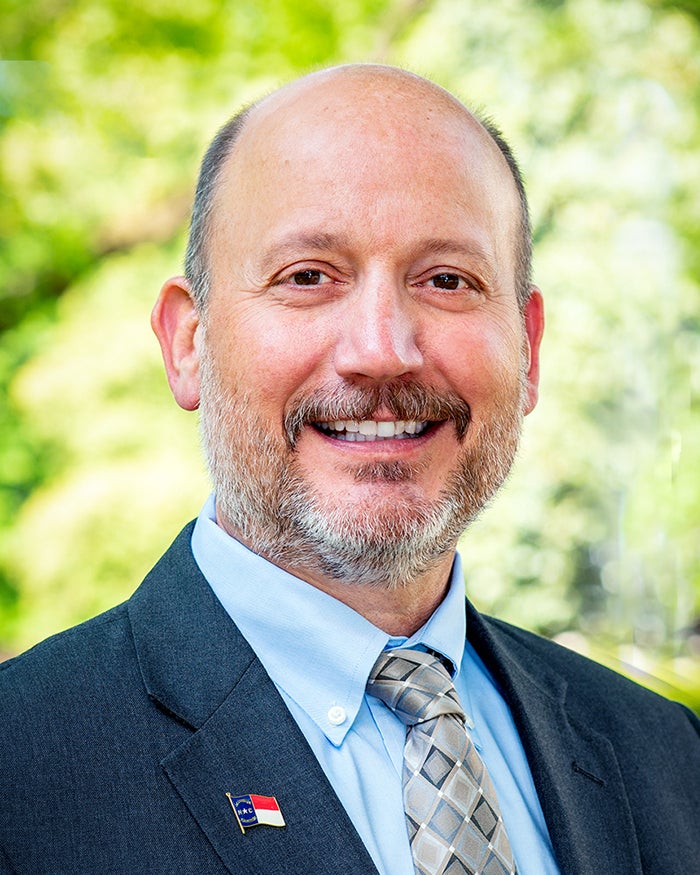Chamber takes a change in guest speakers in stride
Published 12:03 am Friday, April 21, 2023

- Hopkins
SALISBURY — Rowan Chamber of Commerce officials showed cool professionalism Thursday morning when a last minute change in guest speakers didn’t make them skip a beat.
Initially, N.C. Secretary of Transportation Eric Boyette was scheduled to speak, but when illness kept him home, NCDOT Chief Operation Officer Joey Hopkins stepped in and gave an informative presentation.
“We were disappointed the secretary could not attend due to illness; however, NC DOT COO Hopkins did an excellent job with the presentation and highlighted several Rowan transportation projects. We were especially pleased that the Rowan-Cabarrus Community College truck driver training was mentioned. That was a direct result of the Chamber’s most recent business advocacy trip to Raleigh,” said Chamber President Elaine Spalding.
The project Spalding refers to involves RCCC’s truck driving program that continues to have a waiting list for participants, despite the college using off-site property for the classes.
Thanks to efforts from the Chamber, the DOT is now working with the college to develop a roadway for the driver training range. Currently the college is temporarily using the West End Plaza. Once the program is on site, Hopkins said the college could potentially serve as many as 500 students per year.
Gary Blabon, president and COO of Novant Health, introduced Hopkins to the more than 120 guests who gathered for the monthly Power in Partnership breakfast at Trinity Oaks.
Hopkins oversees the following divisions: highways, ferry, aviation, rail, integrated mobility, planning and programming, and the communications office. He has worked at NCDOT for 33 years in a variety of roles, including serving as a deputy chief engineer. He previously worked in Raleigh-based Division 5 as a division engineer, deputy division engineer, division maintenance engineer and division operations engineer. Hopkins has also served on NCDOT’s Transformation Management Team and was instrumental in developing the Strategic Prioritization Process, the data driven process used to help prioritize transportation projects in North Carolina.
Hopkins touched on several projects that will directly impact Rowan County, including the widening of Julian Road and the replacement of two bridges on NC 49, both of which are in progress. He also mentioned two roadway improvement projects: the Spencer Greenway project, which affects both Spencer and East Spencer and is being run by Spencer, and the I-85 McCanless Road exchange in East Spencer. Both are still in planning stages, and when East Spencer Mayor Barbara Mallett asked how to help her town’s local project to get higher on the list, he gave her a few ideas about how to add local points to the project to push it up the list.
Hopkins praised the state’s wildflower project, noting that a number of other states reach out to NC for direction and advice on their programs.
“We not only have great soil here in North Carolina, but we have a trained and dedicated staff who know how to care for wildflowers,” he said. He also praised volunteers who try to help the state keep up, to some extent, with litter along state roads, though he admitted it’s never quite enough.
“We will clean a road, collect trash, haul it away, and the next day people come back and it’s already littered again,” he said. “It’s hard to get ahead. The state spent $220,000 last year in Rowan County alone and collected 11.5 million pounds of trash.”
Hopkins mentioned several technological advances coming, including a kit that can be attached to trucks and connected to Waze, the cell phone app, that can then notify the app of road blocks or lane closures in almost real time, and the Emergency Vehicle Alerting Device, which is the first in the nation tethered unmanned aerial system or drone that will help first responders with evaluating and managing situations from visual reviews.
He added that the legislature has moved to give the DOT 2 percent of the sales tax, increasing to 4 percent next year, then the following year capping at 6 percent, which will help offset the loss of gas tax revenue.
“Most importantly, we have to have partnerships to move forward,” he said. “We all have to work together or it won’t happen, so we’re grateful for those partnerships. We know the importance of maintaining what we build. We don’t cut ribbons when we fill a pothole, but overall in North Carolina, we do a decent job, far better than we did 10 years ago.”



